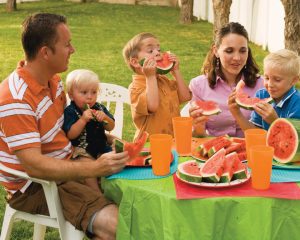What is a provident lifestyle? Most dictionaries will explain a provident person as having shown foresight, having prepared carefully for the unseen future.
A provident family begins with provident individuals. And nowhere is there a better definition of a provident individual than in the scripture chapter found in Proverbs 31.
 For some reason, this chapter keeps coming into my head. I dunno. Perhaps it is the continuing coverage of pending, global wheat shortages. Perhaps it is the amount of wars in the news. Perhaps it is the quantity of peculiar weather patterns we are experiencing.
For some reason, this chapter keeps coming into my head. I dunno. Perhaps it is the continuing coverage of pending, global wheat shortages. Perhaps it is the amount of wars in the news. Perhaps it is the quantity of peculiar weather patterns we are experiencing.
Whatever the reason, Proverbs 31 seems to becoming faster and faster a recurring theme in my head. So I turned to it this morning to look more closely at its words. Apparently there is something the Lord wants me to learn from this famous piece of scripture.
King Solomon in Old Testament time was known for his wisdom (that is, up until the end of his life when he turned to pagan worship). The Lord had given the gift of wisdom to Solomon per his request. Much of the book Proverbs in the Bible, and the wisdom therein, comes directly from Solomon’s hand.
Proverbs 31:10-31 speaks directly about a virtuous woman. If we look up the definition of “virtue”, we will find explanations of moral excellence, goodness, and the ability to conduct oneself with ethical principles.
If we compare the concept of virtue with a preparedness lifestyle, the two would strongly parallel each other. In other words, a preparedness lifestyle contains many of the same virtues as those listed in Proverbs 31:10-31.
Let’s look at those virtues now. Of course, this set of scripture verses refers to a woman in particular, but in truth the principles apply to all who desire wise living:
“The heart of her husband doth safely trust in her, so that he shall have no need of spoil. She will do him good and not evil all the days of her life” (vss 11-12).
There is no spoil with a prepared person. No waste. Food is rotated and used wisely. Finances are handled appropriately.
“She seeketh wool, and flax, and worketh willingly with her hands” (vs 13)
A prepared and prospered person is not lazy; instead he or she spends their time working willingly. Is it not because in the pursuit of thrift and industry we find joys we find no other way?
“She is like the merchants’ ships; she bringeth her food from afar” (vs 14).
A thriving food storage is full of items not only grown at home, but carefully gathered over time from many places – all with the purpose of blessing the family during a potential time of scarcity.
“She riseth also while it is yet night, and giveth meat to her household, and a portion to her maidens” (vs 15).
There is a scripture in the Doctrine and Covenants, a book of scripture held valuable by the Mormons (officially the church is called The Church of Jesus Christ of Latter-day Saints), that speaks to getting up early in the morning, similar to Proverbs 31:15. That verse states:
“Cease to be idle; cease to be unclean; cease to find fault one with another; cease to sleep longer than is needful; retire to thy bed early, that ye may not be weary; arise early, that your bodies and your minds may be invigorated” (D&C 88:124).
So many principles and concepts can be found in Proverbs 31:10-31! I think I will continue exploring this further in future blogs!
To read the full text, click here on this Proverbs 31:10-31 link.
To learn more about the Mormon church and what we believe, click here.


